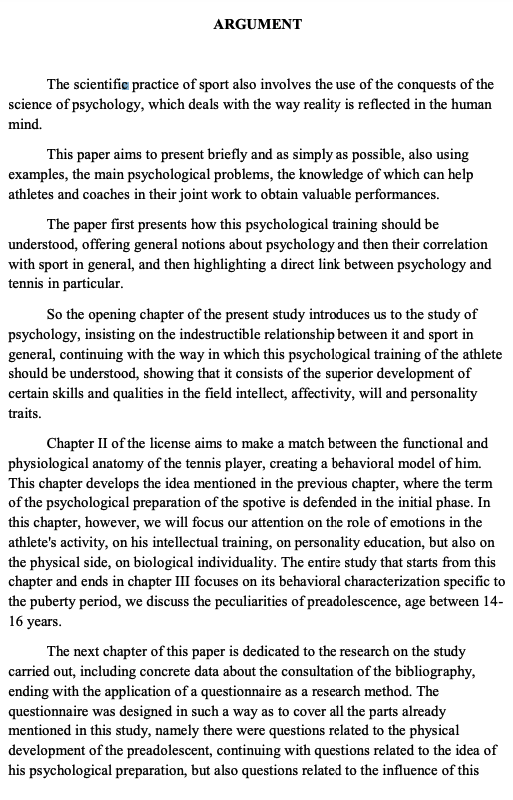Tennis Player Psychology
Summary:
The study delves into tennis players’ multi-faceted personality and physiological anatomy, aiming to construct a comprehensive psychological model tailored to their unique needs. The initial chapters provide a scientific foundation for understanding the psychology specific to tennis, ranging from focus and motivation to the unique pressures and demands of the sport. The research then discusses the tennis player’s functional and physiological anatomy, highlighting how physical capabilities are intrinsically linked with psychological attributes. Specific topics such as muscle development, stamina, and neurological functions are covered, explaining how these elements interact with the player’s mental state to affect performance.
The work also presents research studies to substantiate the theoretical frameworks laid out in the early chapters. Data gathered from these studies provide invaluable insights into the physiological and psychological elements contributing to a tennis player’s performance, encapsulating various characteristics like resilience, focus, and adaptability. Towards the end, the paper presents its primary contribution: a psychological model of the tennis player. This model is developed based on real-world observations and exemplified by analyzing the traits of four world-class players. It aims to serve as a roadmap for aspiring tennis players and coaches to understand what mental and physical attributes are essential for success in the sport.
Conclusively, the study offers a rounded viewpoint on the psychological and anatomical aspects that define a successful tennis player. It also acts as a precursor to further research, inviting scrutiny and validation while providing a sound scientific base for future interdisciplinary studies in sports psychology and physiology. The paper is not just a contribution to academic discourse but a practical guide for athletes and coaches aiming for excellence in tennis.
Excerpt:
Tennis Player Psychology
ARGUMENT
The scientific practice of sport also involves using the conquests of the science of psychology, which deals with how reality is reflected in the human mind.
This paper aims to present briefly and as simply as possible, also using examples, the main psychological problems, the knowledge of which can help athletes and coaches in their joint work to obtain valuable performances.


Reviews